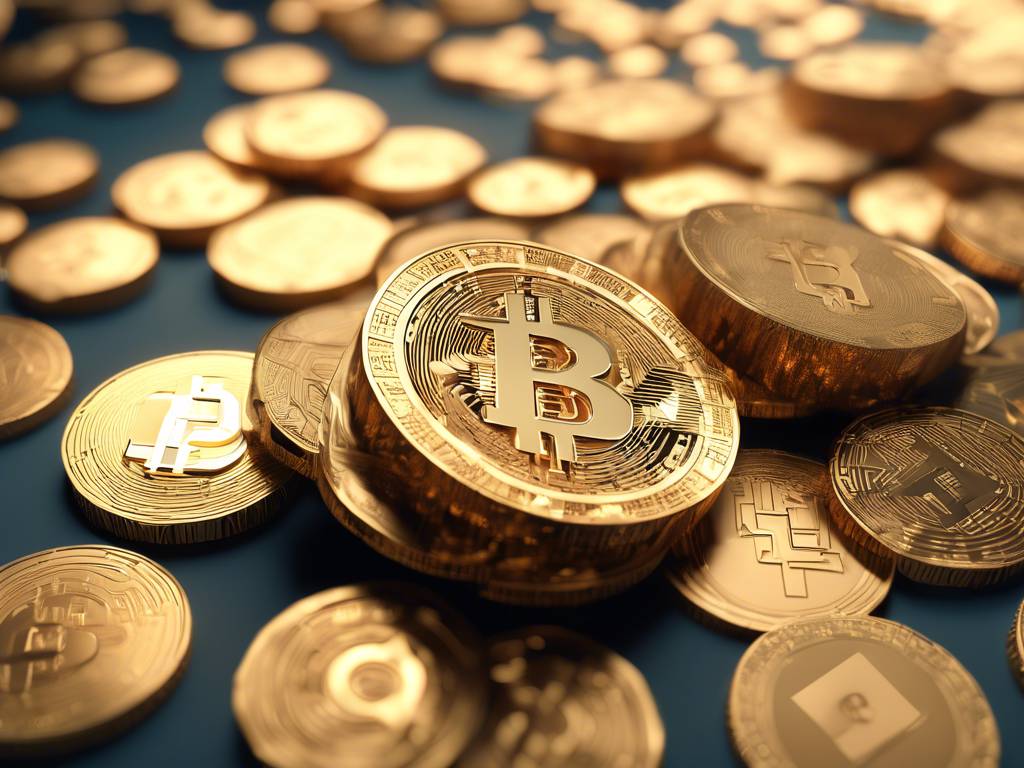Transforming the Financial Landscape: Embracing Digital Currency in 2023 🚀
The emergence of a digital and global economy has significantly reshaped communication and commerce over the past three decades. Individuals now have access to user-generated content from diverse sources worldwide, which complements traditional media. This shift has opened up avenues for a more democratized and decentralized flow of information.
However, a crucial element was still absent: a new form of money. With the arrival of platforms like PayPal, a new chapter in internet usage began, one that focused on commercial activities. Websites evolved from mere showcases to vital marketplaces, conducting business round the clock. This marked the dawn of digital currency and established a more open and active global marketplace. For total marketing to thrive, there’s a growing need for seamless liquidity in both data and financial transactions. So, are we there yet?
The Launch of PYUSD: A Game Changer 💰
In 2023, PayPal unveiled its inaugural stablecoin, pegged to the US dollar, known as PYUSD. The following year saw its expansion onto the Solana blockchain, in addition to Ethereum. Currently, it serves the US market, and within a mere three weeks of its introduction, it attracted over 300 million wallets, amassing a market cap exceeding $1 billion. Previously, a bank account was essential to utilize PayPal, but with a blockchain-backed currency, new pathways into the global economy have emerged. PYUSD is exchangeable with other cryptocurrencies, thereby functioning equivalently to them. By integrating with Solana, recognized for its high throughput and robust security protocols, PayPal positions itself to vie directly with the Visa network. Is the financial sector prepared for a transformative shift? Are we on the brink of a massive confrontation among financial titans defending their territory against the surge of innovative technologies?
Insights from Industry Leaders 💡
To gain further insight into the evolving landscape, we engage with Tom Rieder, a seasoned entrepreneur and Managing Director at Tokengate, which provides tokenization services, including for real-world assets. Tokengate has cemented its status as a key player in Zug and the broader blockchain ecosystem.
“When it comes to international transactions, numerous intermediaries, filters, and challenges exist. Blockchain technology can facilitate smoother financial transactions. While the potential and technical skills are well-established, traditional banking systems still maintain their interests and fees. Instantaneous financial revolution isn’t imminent,”
Rieder underscores these points.
“The financial sphere is inherently complex, governed by regulations that vary across markets and countries. Regulatory compliance is essential. Strong anti-money laundering regulations are necessary to combat large-scale criminal activities that flourish in unregulated environments. The main objective of decentralized finance (DeFi) is inclusivity. Today, countless individuals remain unbanked and are unable to engage with the global economy, as the conventional system hesitates to incorporate them. Our aim is to minimize barriers and costs while ensuring trust and safety, which allows everyone to participate,”
Rieder emphasizes this crucial aspect.
The Role of Stablecoins in Bridging Two Worlds 🌉
The introduction of PYUSD serves as a potential connector between established and emerging financial systems. Its stability, particularly being linked to the US dollar, presents an opportunity for broader acceptance of digital assets. Stablecoins offer the benefits of cryptocurrencies, such as security, transparency, and interoperability with leading chains and tokens. This makes them ideal for micro-transactions and programmability, allowing trading to become as accessible as possible for anyone with internet access. Will PayPal and new digital finance entities eclipse traditional banks?
“Commercial banks initially served their local communities with a strong foundation of trust. While they still fulfill an essential role in society, modern fintech entities have a compelling advantage, yet must earn the trust of both consumers and other institutions. Ultimately, trust remains the prevailing asset for any financial entity to acquire and safeguard. Opportunities for innovative financial platforms exist, especially for those users who seek autonomy and require minimal assistance. Basic services will likely transform into commodities, while avenues like wealth management and investment will continue to necessitate personal guidance, as the human touch remains vital in managing finances,”
Rieder notes.
Fundamental financial services, especially for the world’s underserved populations, are likely to be automated, eliminating associated fees. Traditional banks will adapt by concentrating on value-added offerings. New banks will need to navigate regulatory hurdles to enter mainstream financial circles. Technology will play a pivotal role in an economy that craves improved liquidity for both data and financial transactions. So again, are we there yet, and what are the prospects?
“The upcoming years are pivotal, indicating we may not be fully prepared yet. Nonetheless, signs suggest that we could reach maturation within five years. Conventional banks are testing new methodologies, while new entrants are securing banking licenses. Market confidence in digital solutions is gradually rising, and financial literacy is evolving. The future of money lies just ahead, characterized by trust and inclusivity, traits it has maintained since its inception,”
Rieder concludes.
Money acts as a powerful facilitator and resource liberator. In a world increasingly reliant on data analytics, ensuring that transaction frameworks are secure, transparent, and capable of supporting both macro and micro needs is crucial. While traditional banks might prefer larger profit pools, technology can tap into microtransactions, unlocking significant economic opportunities in individuals’ lives.
Frank Pagano





 By
By
 By
By

 By
By

 By
By